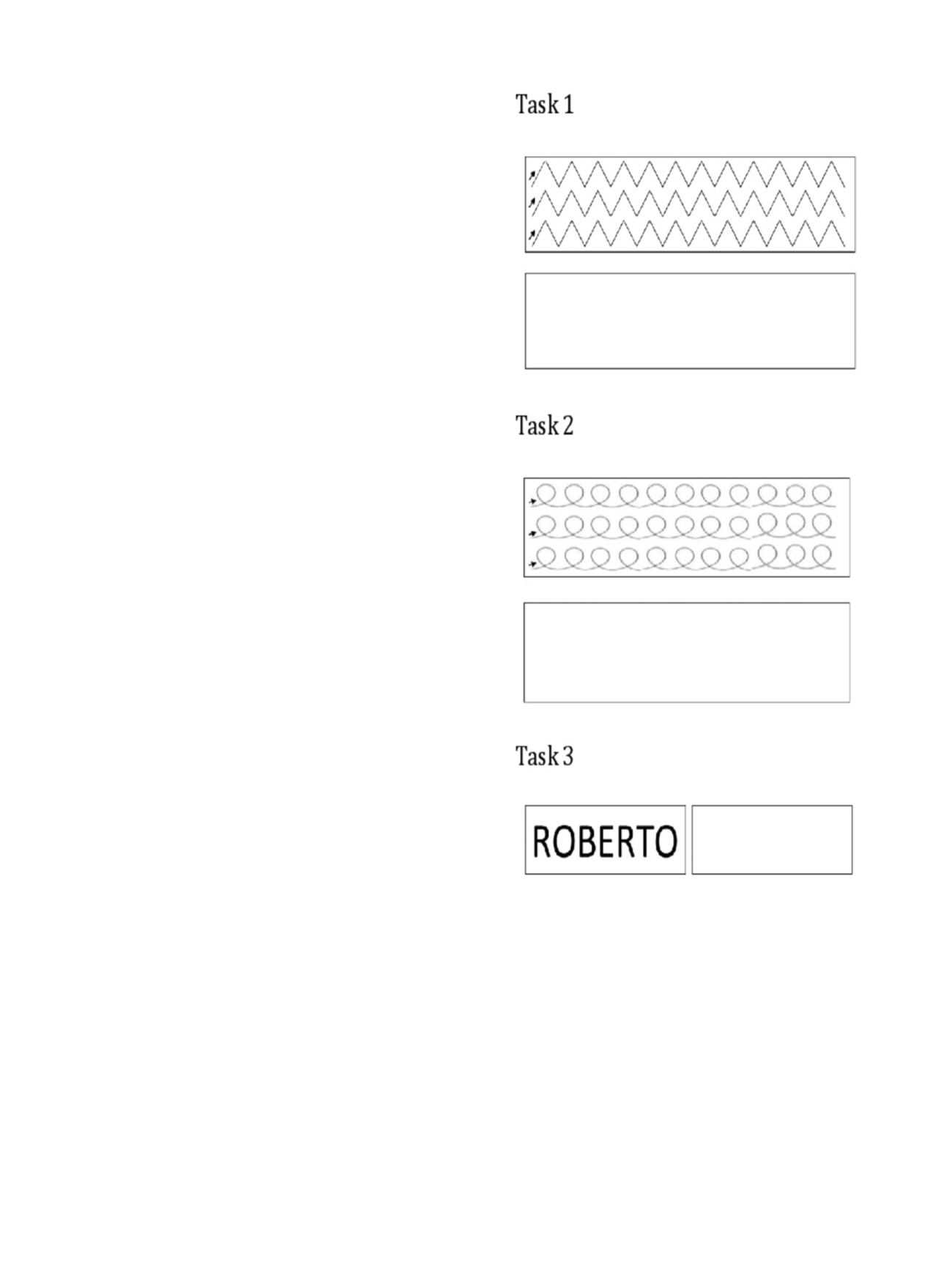

S808
25th European Congress of Psychiatry / European Psychiatry 41S (2017) S772–S846
Method
Overall, 35 healthy participants and 43 patients with
psychosis from San Agustín Hospital (Linares, Spain) participed in
the study. Participants were asked to write with a pen on a white
paper (see patterns in the
Figure 1 ).In order to analyze the het-
erogeneity of handwriting pattterns, we employed lacunarity, a
nonlinear measure previously used in the analysis of biomedical
images. Lacunarity measures the distribution of gap sizes in a geo-
metrical space. A large value implies large gaps and clumping of
points, whereas a small value suggests a uniform distribution with
shorter gaps.
Results
Lacunarity was significantly higher in handwritten pat-
terns from patients than in controls. In addition, we found a higher
heterogeneity in patients with motor symptoms in comparison
with patients without motor symptoms.
Conclusions
Our results suggest that analysis of handwritten
patterns can be a valuablemethod in the evaluation of motor symp-
toms.
Fig. 1
Disclosure of interest
The authors have not supplied their decla-
ration of competing interest.
http://dx.doi.org/10.1016/j.eurpsy.2017.01.1564

















